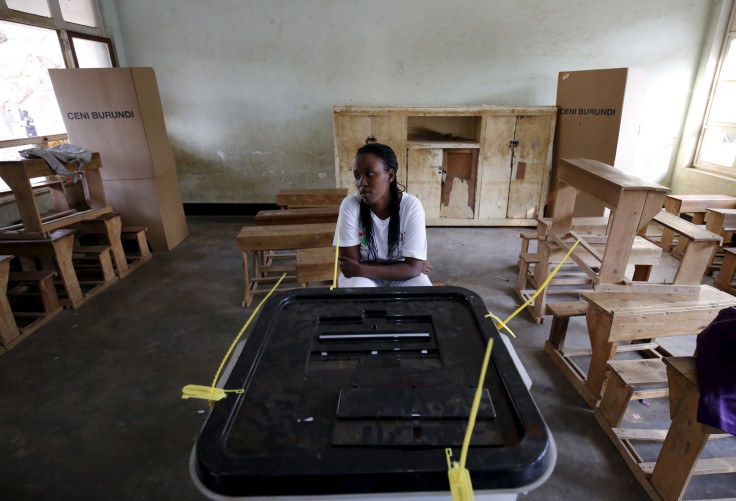Burundi Presidential Election 2015: Voter Turnout Low In Capital Bujumbura Amid Gunfire And Explosions

Burundi’s electoral commission said voter turnout during Tuesday’s presidential election was low at polls in the capital city of Bujumbura after a night of gunfire and explosions. Polling stations in more rural areas reported a more promising turnout with an estimated 70 to 80 percent of registered voters participating in the controversial election, according to Deutsche Press-Agentur.
At least three people were killed Tuesday by gunfire or grenades, including an opposition activist whose death angered protesters and sparked rallies. Bujumbura has been the heartland of dissent and violence over Burundian President Pierre Nkurunziza’s bid for a third term, which the opposition said violates the constitution.
Nkurunziza had postponed the presidential election twice under mounting pressure from regional and international leaders. Ugandan mediators had urged the Burundian president to hold the polls until the government reached an agreement with opposition leaders, but Nkurunziza went ahead with the election Tuesday anyway. Burundi’s major opposition parties have boycotted the election and international leaders have condemned the polls.
As Burundi's Nkurunziza cycles to vote, US criticises elections for lack of "legitimacy" http://t.co/up3a5K2fBc pic.twitter.com/kfGTtZHJuN
— AJE News (@AJENews) July 21, 2015“The United States warns that elections held under the current conditions in Burundi will not be credible and will further discredit the government,” U.S. State Department spokesman John Kirby said in a statement Tuesday. “The legitimacy of the electoral process in Burundi over the past few months has been tainted by the government’s harassment of opposition and civil society members, closing down of media outlets and political space and intimidation of voters.”
Scores have been killed and about 170,000 Burundians have fled the country since Nkurunziza announced in April he would run for a third term, according to the United Nations refugee agency. Both the Burundian constitution and a peace deal that ended 12 years of civil war state that no president may be elected for more than two terms in office. Nkurunziza, an ex-rebel leader, was elected by Parliament in 2005 following the peace agreement in Arusha, because the unstable African nation was unable to hold direct elections at the time, according to Deutsche Welle.
Burundi’s opposition parties also sat out the 2010 elections, citing ballot rigging and voter intimidation, which resulted in a landslide win for Nkurunziza and his ruling National Council for the Defense of Democracy-Forces for the Defense of Democracy party.
© Copyright IBTimes 2024. All rights reserved.





















